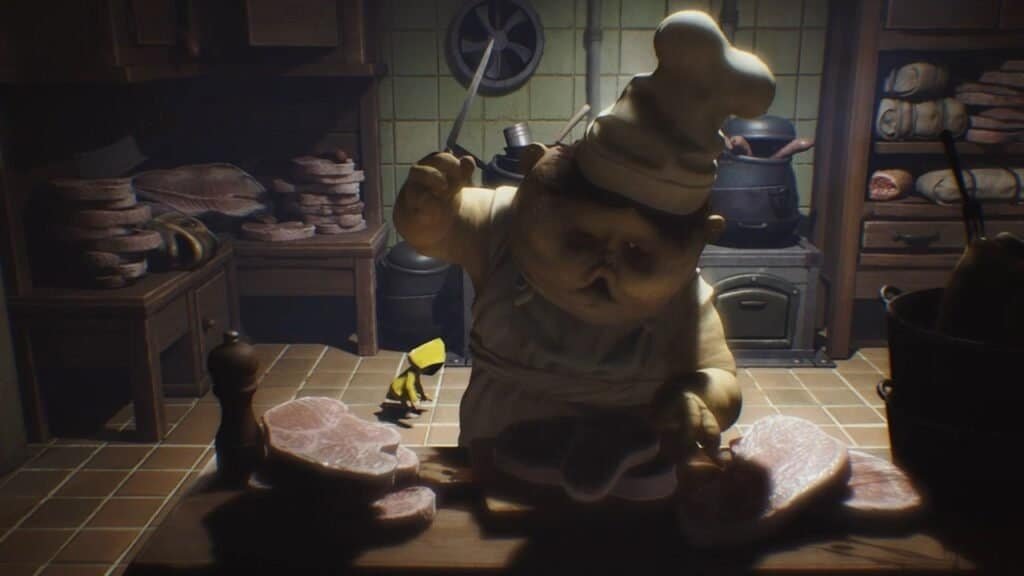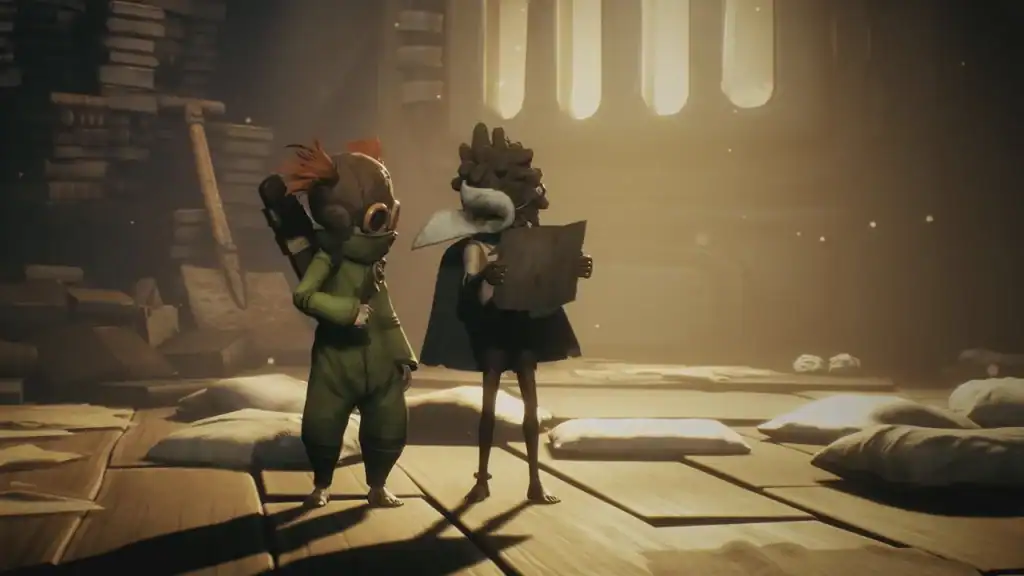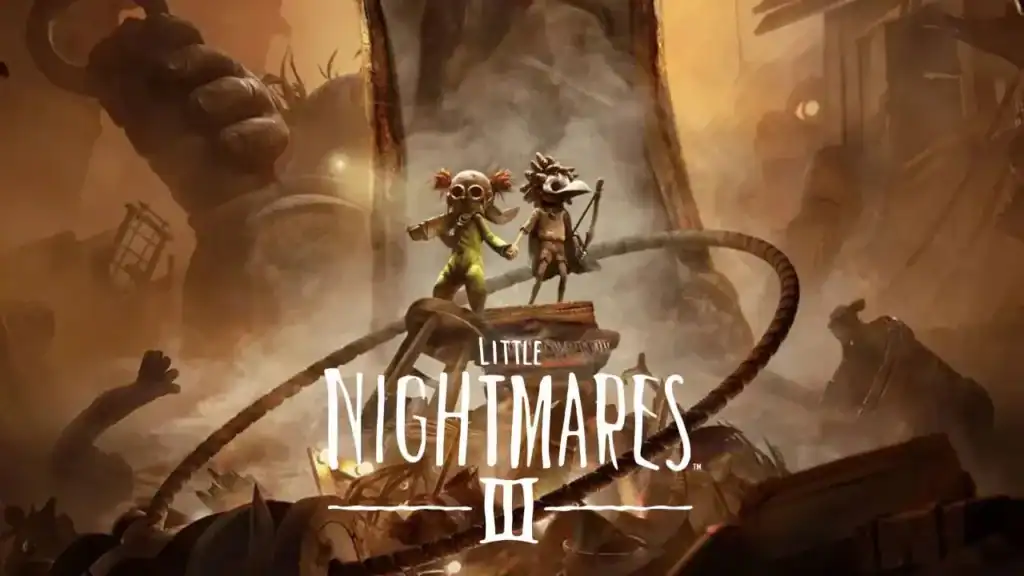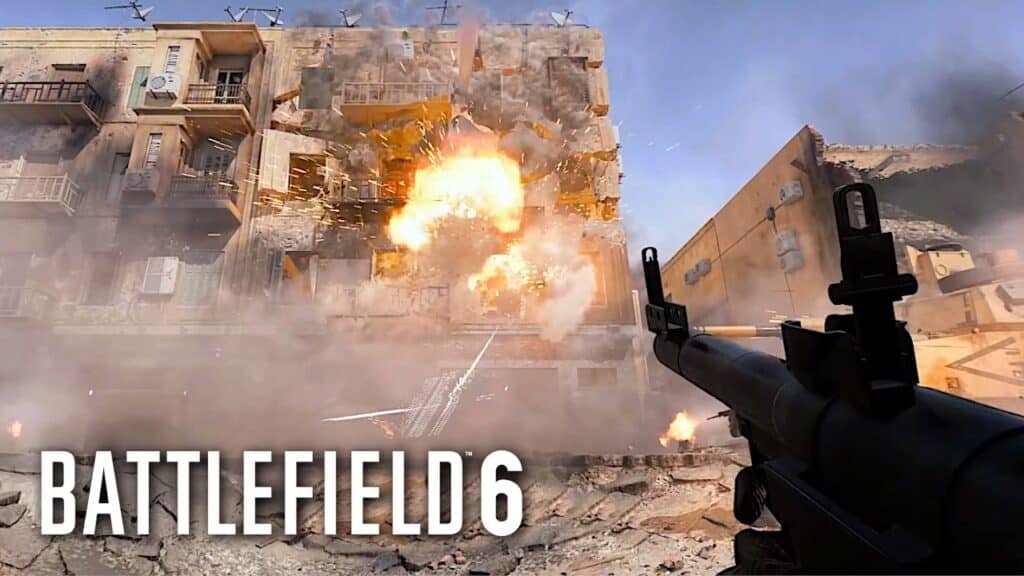Quick Take
- Atmosphere first: Little Nightmares 3 is still about small figures in a giant, hostile world where every room is a puzzle and every corner hides a story.
- New core pillar: seamless online co-op. You can finish the campaign solo, but the level ideas clearly bloom when two players collaborate.
- Trailer focus: environmental hazards, traversal gadgets, and complementary tools hinting at layered puzzle design.
- Accessibility: simpler input complexity than most horror adventures, which makes it welcoming to non-gamers without losing depth for veterans.
Release date, platforms & editions
The Little Nightmares 3 release date has been announced alongside the latest Little Nightmares 3 trailer. The game targets all major platforms at launch, including current-gen consoles and PC. Expect a standard edition and a deluxe-style bundle with cosmetic extras and early access to a small cosmetics pack (exact contents vary by platform).
Key launch notes for buyers:
- Cross-play: Online pairing is core to the experience. Matchmaking aims to be fast and low-friction for drop-in sessions.
- Solo mode: Fully supported. Partner AI assists with switches, levers, and set-piece timing without turning puzzles into autopilot.
- Save system: Checkpoints are frequent, respecting the series’ trial-and-error rhythm without punishing experimentation.

New gameplay trailer — what it actually shows
The latest Little Nightmares 3 new gameplay trailer isn’t just mood; it’s mechanics. The cut teases multi-layered rooms where two characters manipulate the same danger from different vantage points. One distracts a towering threat while the other manipulates a crank under a moving platform. We also glimpse “stacked” puzzles: a vertical section where timing, light, and noise all matter, and a flooded chase requiring coordinated jumps and ledge boosts.
Small environmental stories return: flickering signage, the hum of machinery, and child-sized props frame a world built to belittle you. The camera lingers on silhouettes and shadows more than faces, letting the art direction carry the dread. And yes — the trademark “sprint, slide, hide, hold your breath” sequence is back, but with a playful twist: one player attracts danger; the other solves the exit.
Small environmental stories return: flickering signage, the hum of machinery, and child-sized props frame a world built to belittle you. The camera lingers on silhouettes and shadows more than faces, letting the art direction carry the dread. And yes—the trademark “sprint, slide, hide, hold your breath” sequence is back, but with a playful twist: one player attracts danger; the other solves the exit.
How co-op changes the horror
Co-op can dilute tension in some horror games. Here it amplifies it. Why? Because the fear isn’t just “Will I make it?” It’s “Will we make it?” The smartest scenes in the trailer use co-dependence:
- Asymmetric tools: One child carries a ranged gadget (think rope dart or makeshift slingshot), the other a close-range utility (screwdriver, crank handle). Separately they’re limited; together they unlock routes.
- Call-and-response puzzles: Switches that must be held while another climbs; pulleys that lift platforms but also wake sleeping enemies below.
- Risk transfer: One player lures a monster into a blind spot so the other can edge through an exposed vent. The tension isn’t halved—it’s doubled.
If you’re new to games, the design’s genius is that it teaches by doing. Early rooms are “obvious” collaborations—pull together, lift together—before the game asks for precise timing under pressure. Veterans, meanwhile, will appreciate how the co-op logic introduces speedrun lines and stunt solutions without breaking the story tone.
Puzzles, stealth, and “run or die” moments
At its best, Little Nightmares 3 is a playable short film. The camera frames the foreground action while the background whispers clues. Puzzles rarely stop the flow; they are the flow—weight puzzles, light puzzles, and echo-location moments where noise is both key and killer.
What the new gameplay footage suggests:
- Traversal variety: zip-lines, makeshift bridges, buoyant junk in flooded corridors, and air currents that carry fabric gliders. Co-op timing is everything.
- Object persistence: carryable items survive between rooms more often, enabling emergent “aha” chains (for example, a fuse powering two different contraptions minutes apart).
- Readable stealth: clearer enemy tells—breath, footfall patterns, and cone-of-sight lighting—so success feels earned, not lucky.
- Chase grammar: the classic “learn by dying” rhythm remains, but layouts now surface hints—scratches, hanging cloth, or glimmering bolts—without heavy UI.
Combat remains minimal and desperate. Tools are for traversal or distraction, not domination. When you swing something heavy, it’s a last resort—and the game wants you to feel that weight.

Performance expectations on PC & consoles
Art direction does the heavy lifting. Expect high-contrast lighting, film-grain subtlety, and a painterly texture pass that hides repetition. On modern hardware the target is a stable frame-rate with fast loads between set pieces.
- PC: Scalability first. The game benefits more from fast SSD and CPU single-thread responsiveness than pure GPU brute force, though the latter will let you crank resolution.
- PS5 / Xbox Series: Quality and performance presets are likely. For a side-on cinematic game, clean frame-pacing ranks above maximal pixel counts.
- Steam Deck / handheld PCs: Expect 30–60 FPS with modest settings thanks to tight scene complexity and smart post-processing.
Audio is vital. Headphones elevate the experience: positional creaks, distant drips, and predator breath cues convey where to look and when to freeze. Accessibility toggles for motion blur, camera sway, and hint prompts should help a broad audience enjoy the dread without discomfort.
Should you play it? (Gamer & non-gamer guide)
Little Nightmares 3 sits in a sweet spot between artful indie and polished AAA. It’s easy to pick up, hard to master, and unforgettable in company. Here’s the short guide:
For gamers
- What you’ll love: precision-crafted set pieces, speedrun potential, and layered co-op puzzles that reward clean execution.
- What might annoy: occasional trial-and-error deaths during chases; patience required to perfect routes.
- Verdict: a must-play if you enjoy platformers with soul and horror with restraint.
For non-gamers
- Why it’s welcoming: few buttons, readable goals, and bite-sized chapters. Co-op lets a veteran guide a newcomer without babysitting.
- What to prepare: dim the lights, use headphones, and take turns driving tight sequences until the rhythm clicks.
- Verdict: an ideal first horror adventure—memorable, manageable, and beautiful to watch even when you’re not holding the controller.
Buying tips & spoiler-free checklist
- Edition choice: Standard is all you need for the story. Deluxe cosmetics are stylish but optional.
- Platform pick: Play where your friend group is; co-op shines with trusted partners. PC offers mod potential and quick patches; consoles offer plug-and-play stability.
- Preload & settings: Enable subtitles, tweak brightness until blacks stay black, and cap frame-rate for smooth pacing.
- Spoiler-free prep: Avoid late-game trailer breakdowns; the surprises land best when you don’t know what’s around the corner.
FAQ: Little Nightmares 3 in 60 seconds
Is there split-screen?
Online co-op is the design focus. The solo experience remains fully playable with smart partner AI.
How long is the campaign?
Expect a tightly edited adventure—long enough to tell its story without filler. Co-op and collectible hunts add replay value.
Is it scary or just tense?
Both. The fear is more about exposure and scale than jump scares. Think “oppressive fairy tale” instead of shock horror.
Do I need to play the first two games?
No, but returning players will catch visual echoes and thematic threads. Newcomers won’t be lost—the narrative stands on its own.
Final word: With its sharpened art direction, deft co-op horror design, and a trailer that favors mechanics over fluff, Little Nightmares 3 looks ready to haunt a wider audience—speedrunners, story lovers, and first-timers alike. If your calendar needs a compact, unforgettable adventure, pencil this in on its release date and prepare to hold your breath together.
Explore more in our Gaming category for daily roundups, reviews, and hands-on impressions across consoles and PC.
Did you enjoy the article?
If yes, please consider supporting us — we create this for you. Thank you! 💛



